Impostor syndrome - it is every creative's monster. It is the experience of feeling like a phony, a fraud, or a fake. Everybody experiences this at some point in their life. It can affect anyone regardless of their social status, work background, skill level, or degree of expertise. Here are 7 things people with impostor syndrome do.
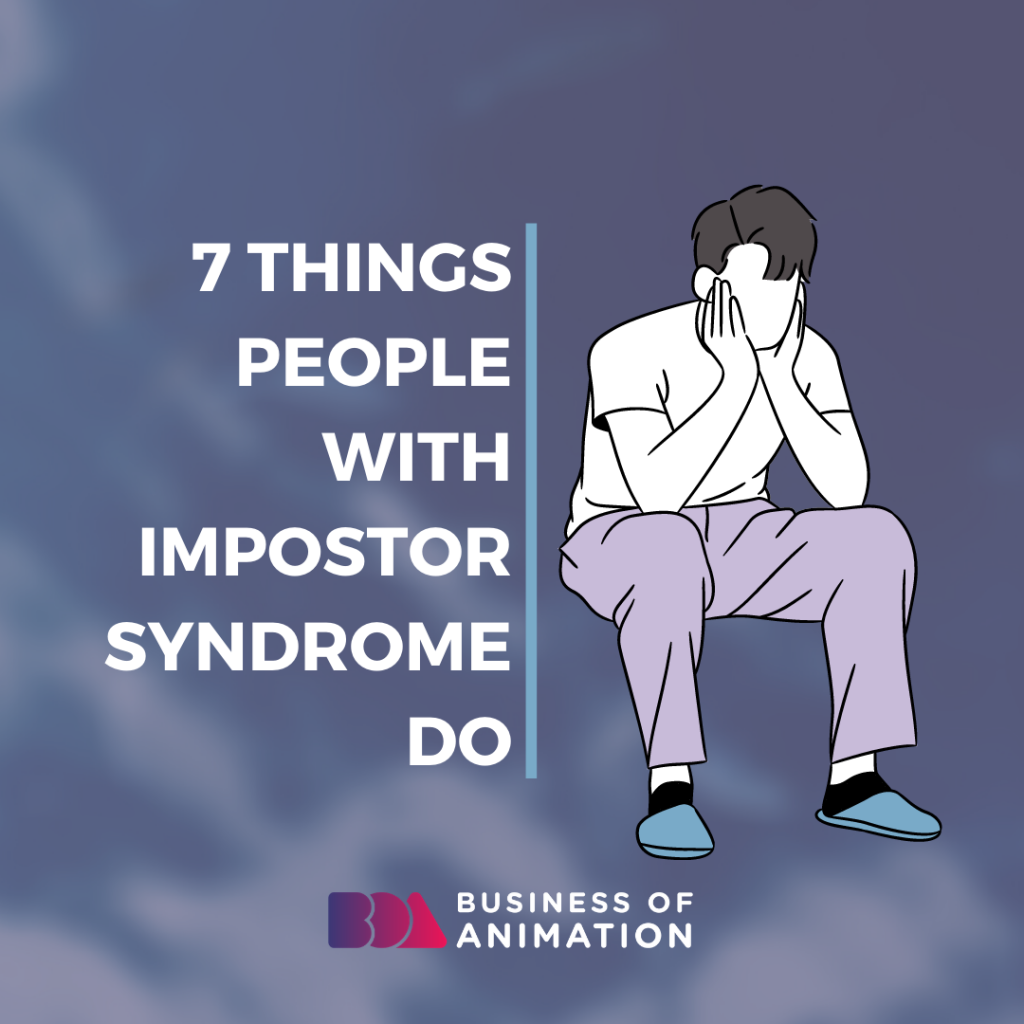
1. Due to low self-confidence, they experience a recurring cycle of self-doubt.
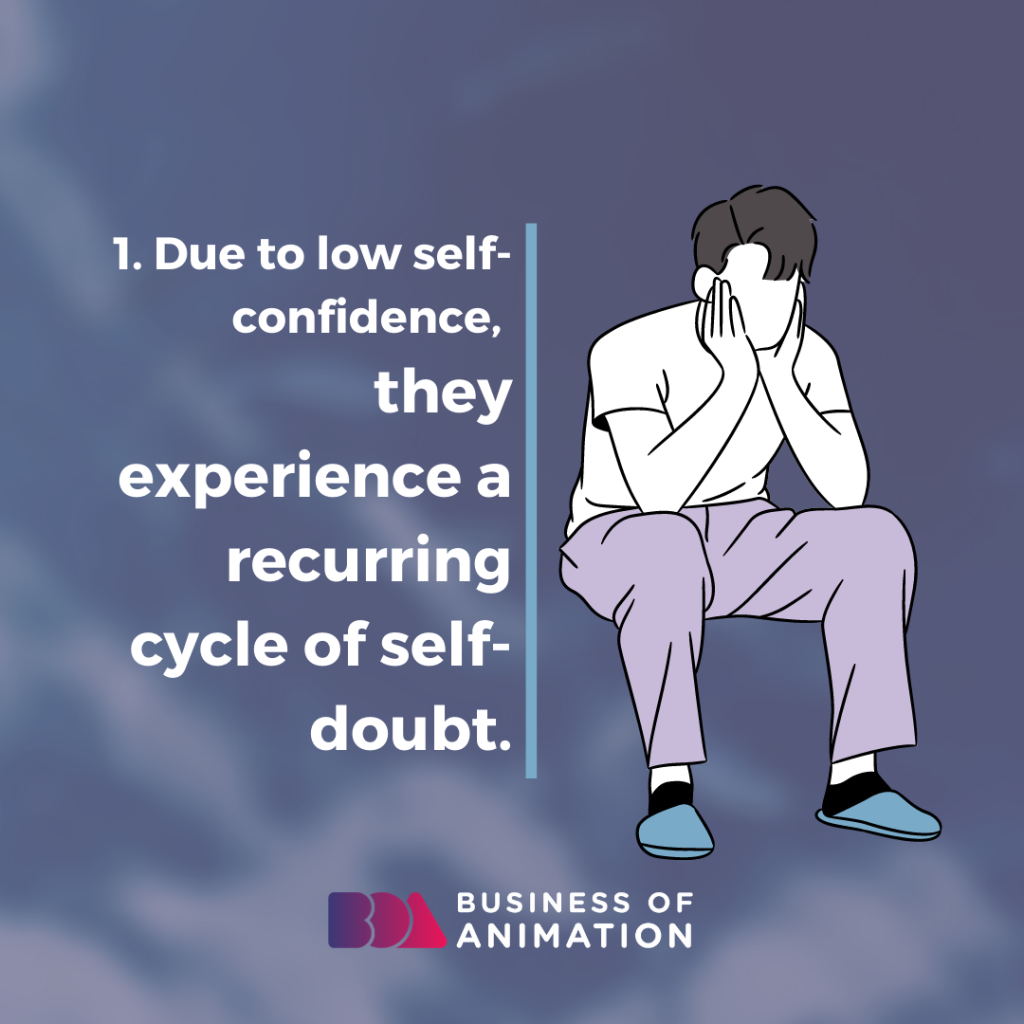
2. They think their co-workers overestimate them.
Thus, there's fear that they won't live up to expectations.
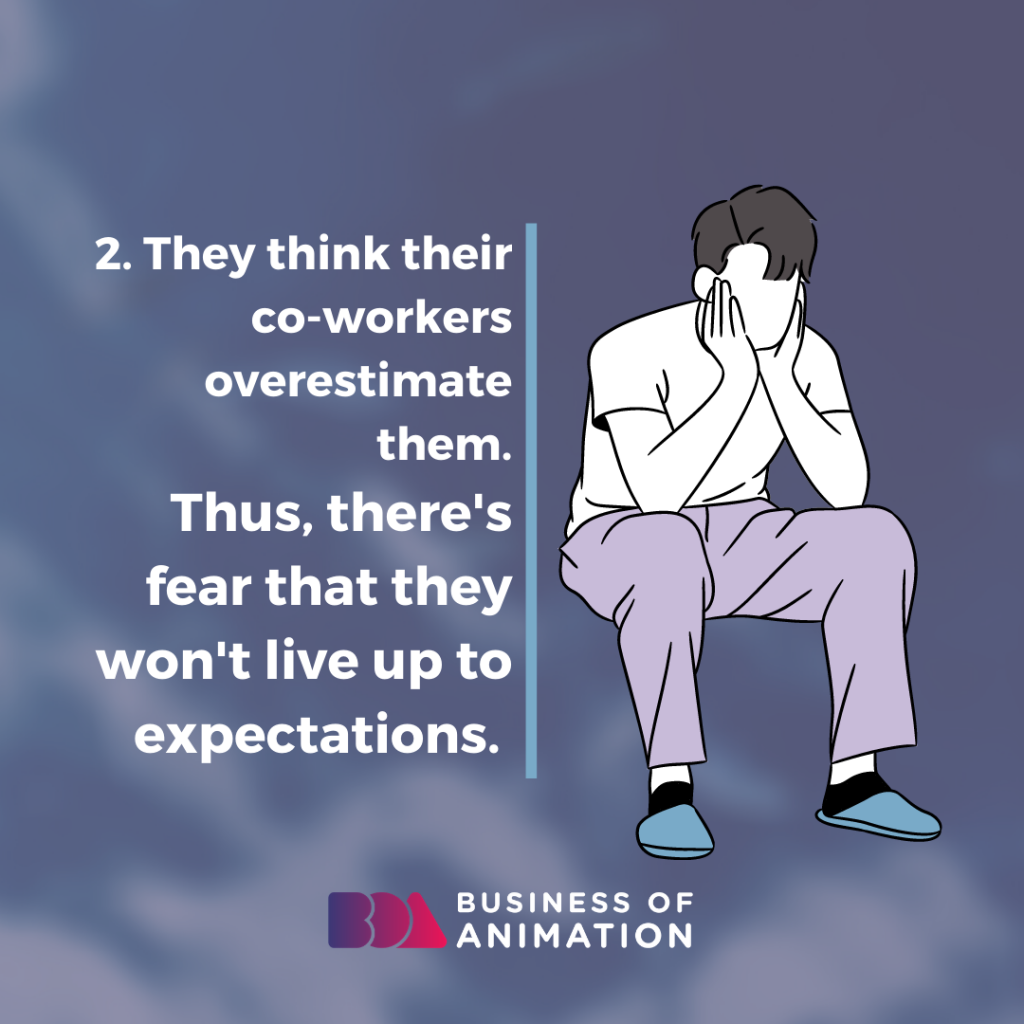
3. They sabotage their feelings of success.
Studies show that success leads to increased anxiety for people with impostor syndrome.
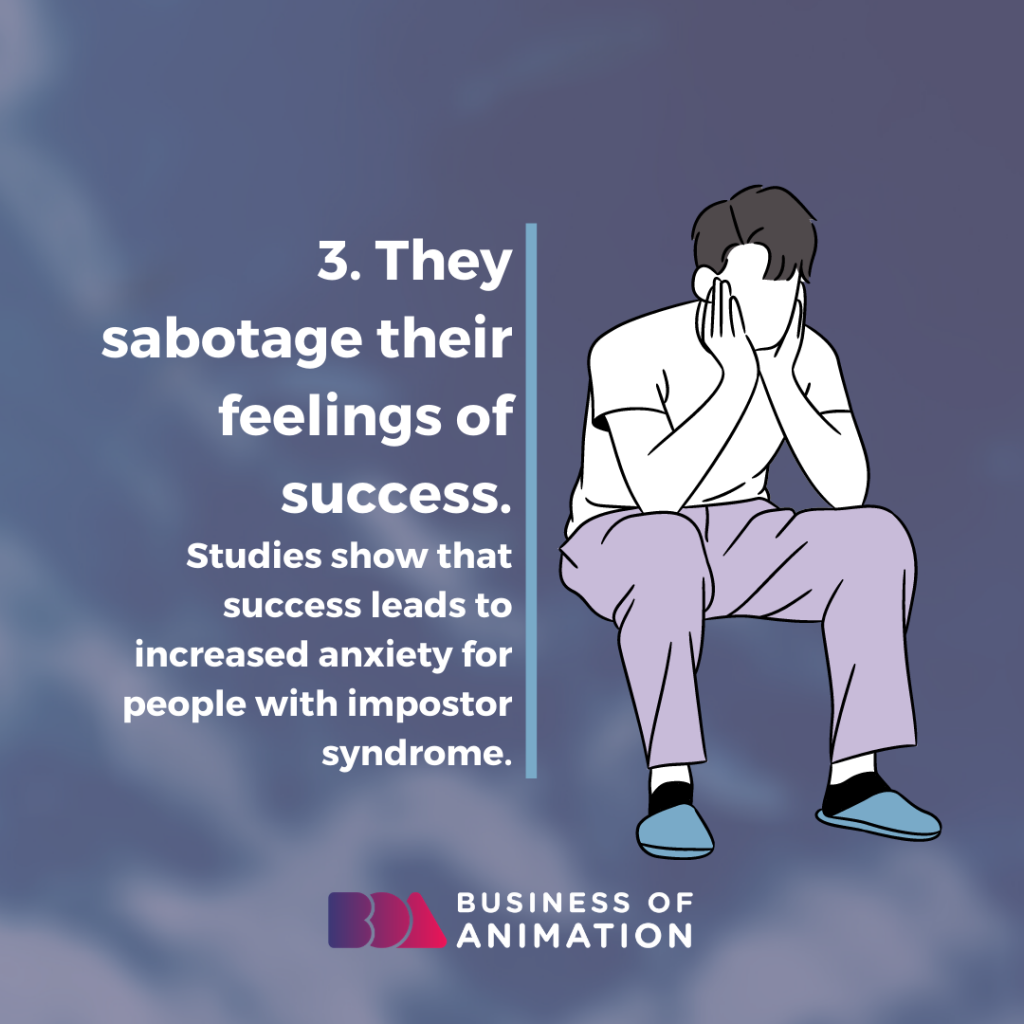
4. They attribute their success to external factors.
"They just say that because they're nice. I don't deserve the praise. I had many connections. I had a lot of help. This doesn't count as my own."
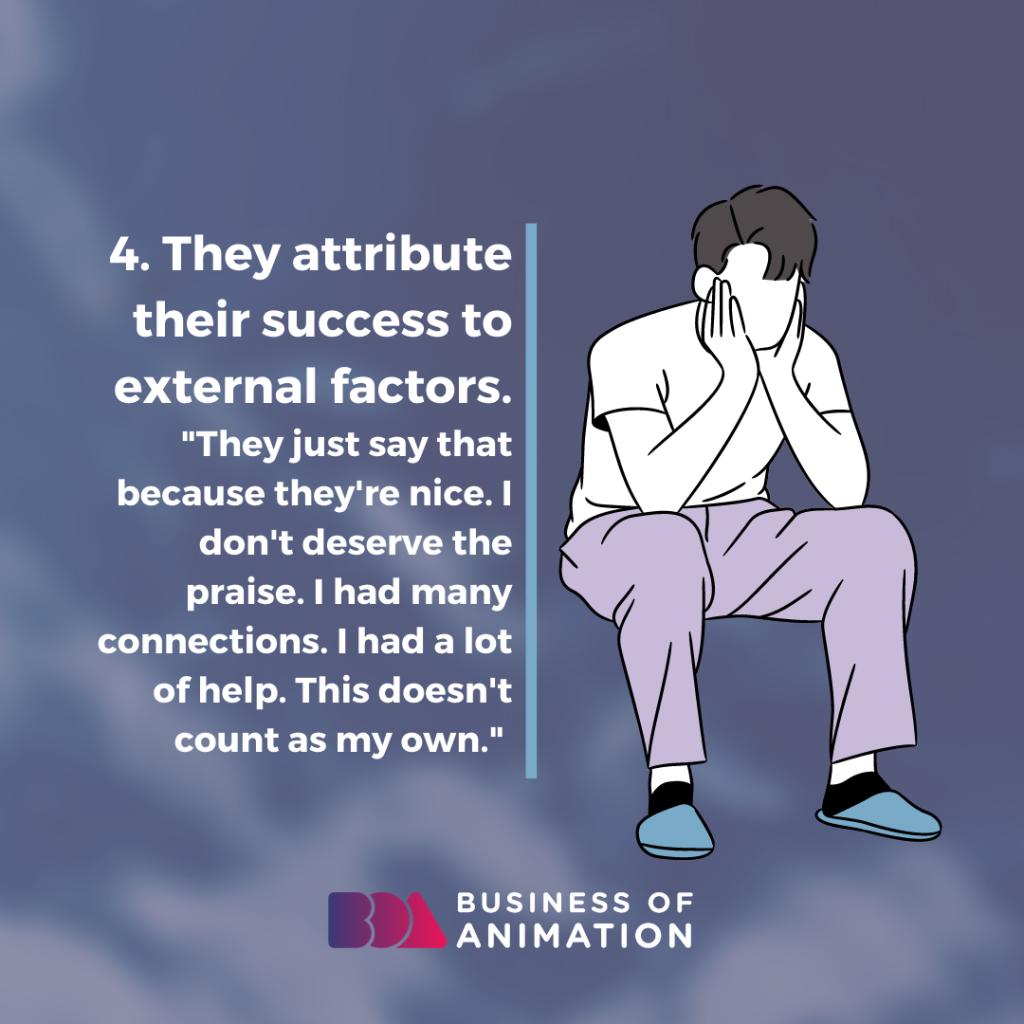
5. They don’t gain satisfaction from their work.
They work really hard, but never feel competent despite receiving validation for their performance.
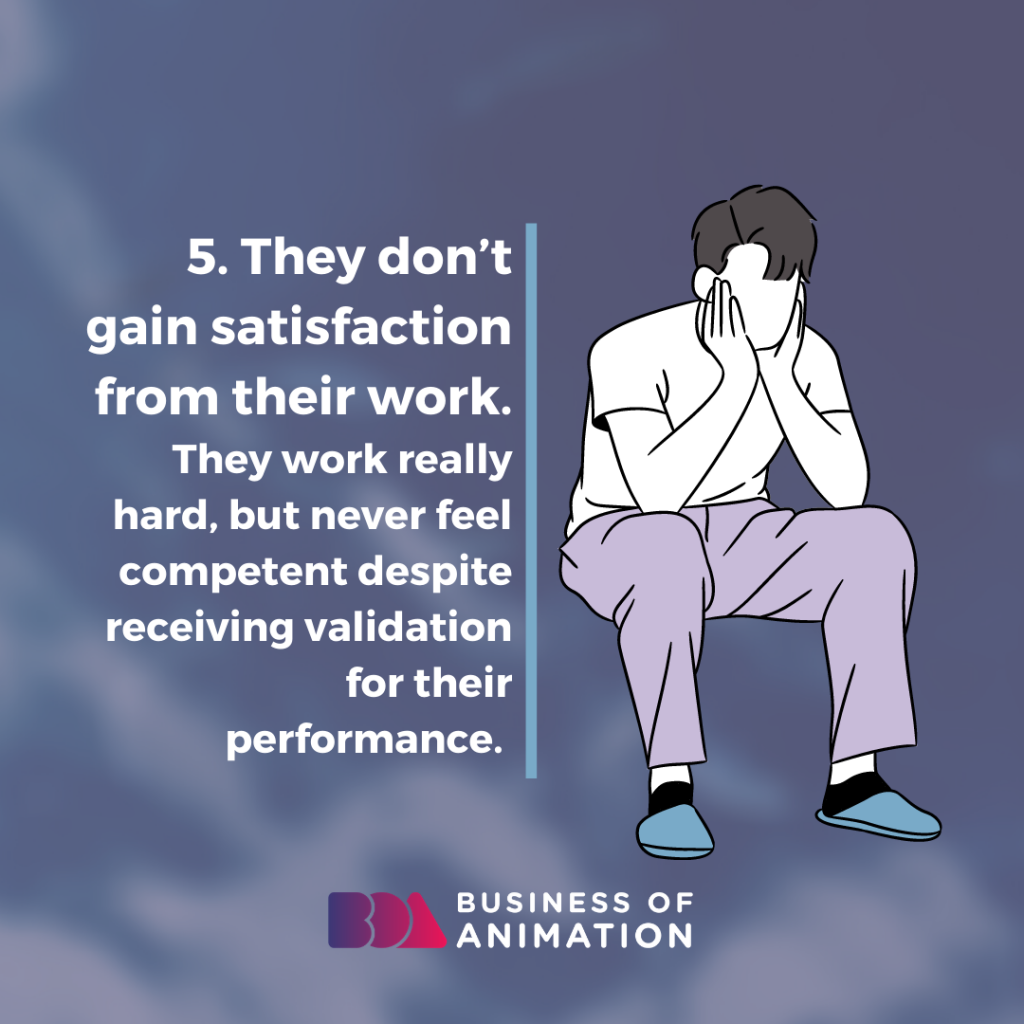
6. They decline opportunities outside their role.
Because they think they might get overwhelmed or they don't have what it takes.
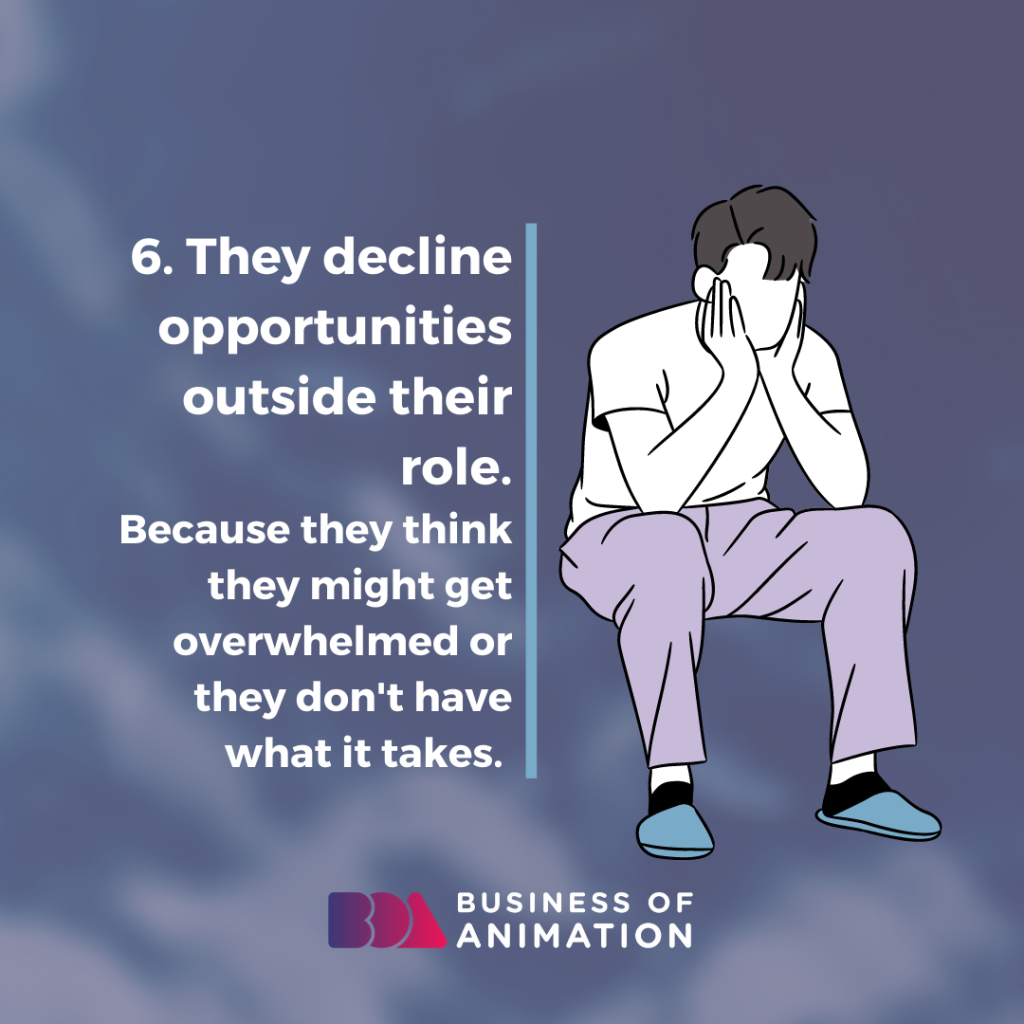
7. They think they are nothing special.
But studies have shown that people who experience Impostor Syndrome mostly have advanced degrees and impressive records of accomplishments.
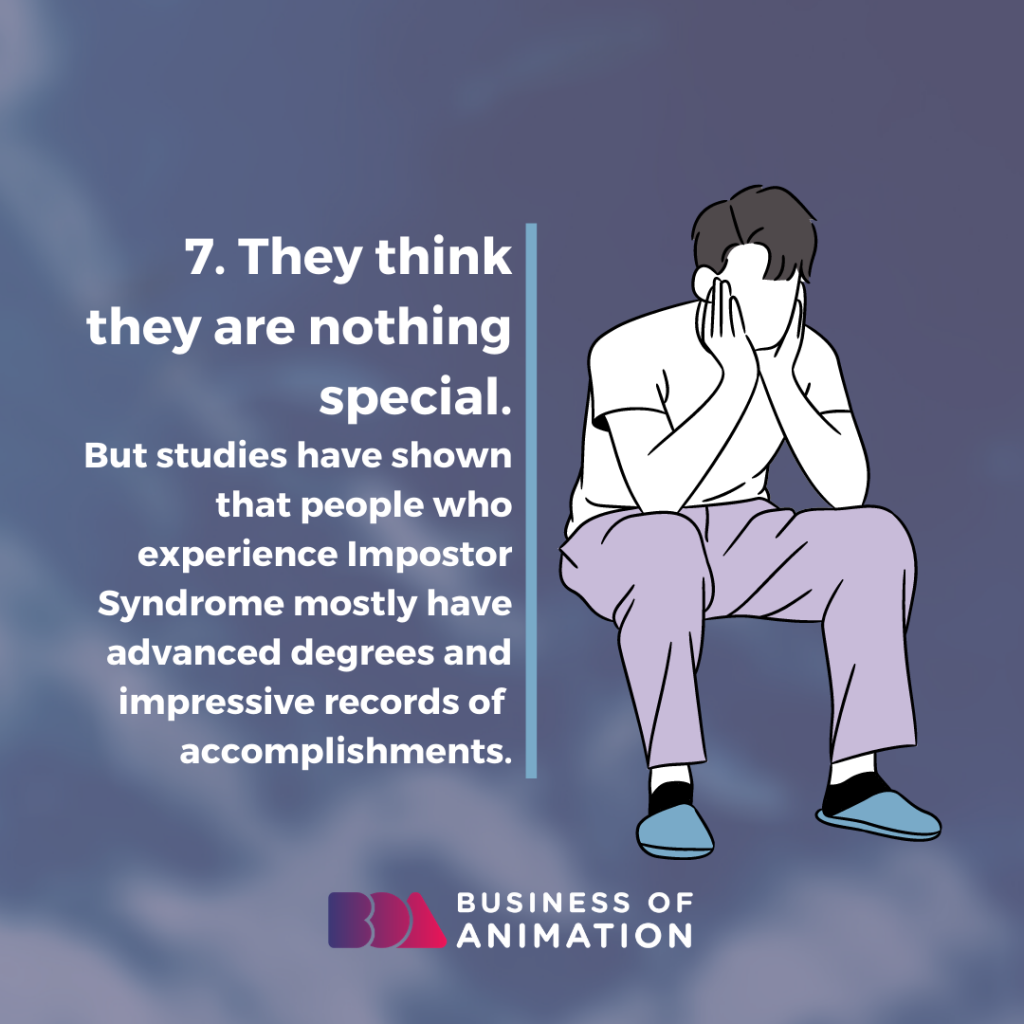
Check out Business of Animation's blog for more in-depth tips on how to grow your animation business!



